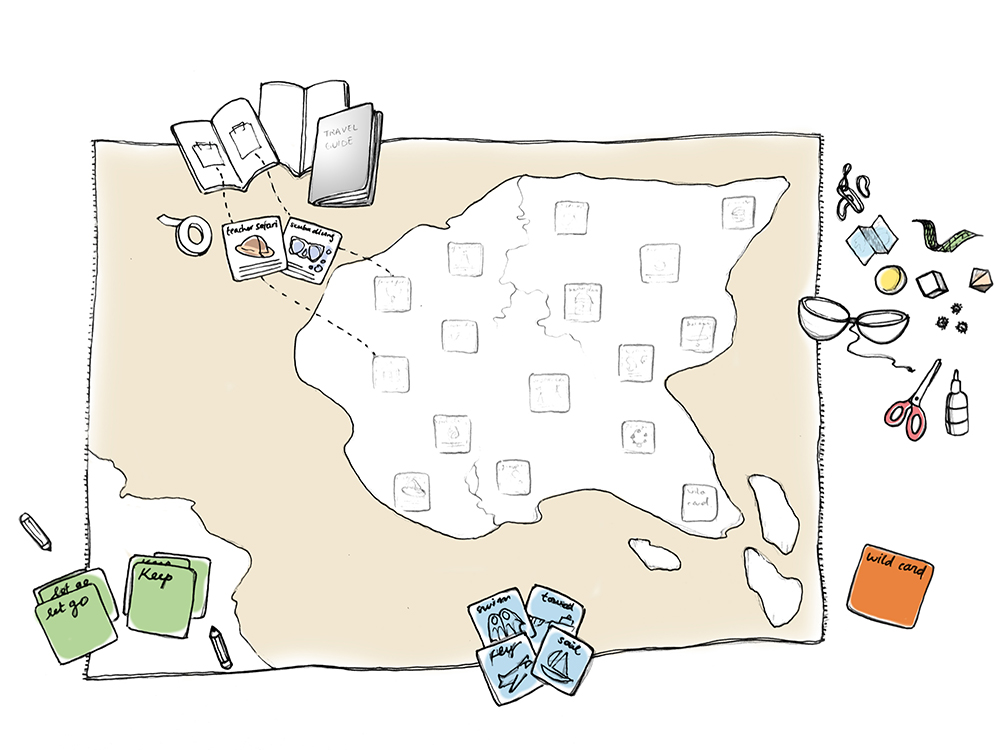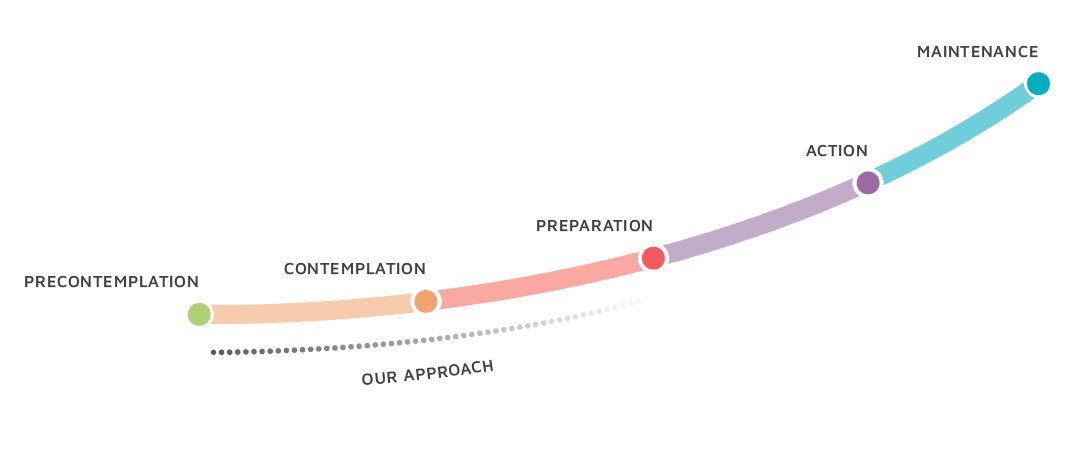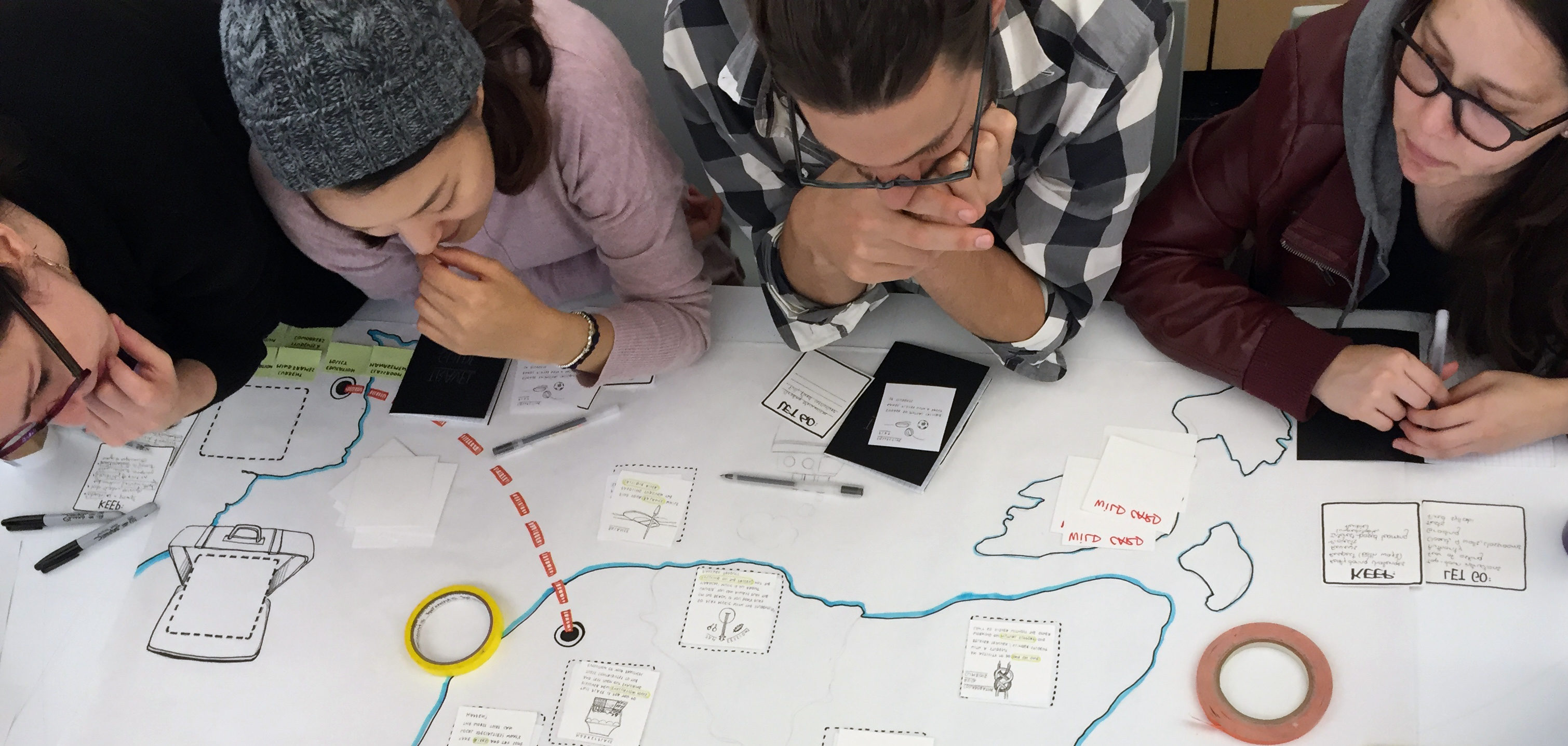Archipelago of Possibilities
A tool for reflection, discussion, and discovery of what teachers hold dear
Collaborative project completed in partnership with Melbourne School of Graduate Education and funded by the Australian Research Council. A tool based around the Transtheoretical Model of Behavior Change for teachers and educators to discover what they hold dear in regards to their practice and teaching.
TEAM: Isabella Brandalise, Ricardo Dutra Gonçalves, Sophie Riendeau, and Ker Thao
ROLE: design researcher, material thinker
PARTNERED WITH: Melbourne School of Graduate Education (MSGE), Australian Research Council, Riverdale Country School

OVERVIEW
The Archipelago of Possibilities is a design-led research project. It is a part of an ongoing initiative funded by the Australian Research Council on Innovative Learning Environments and Teacher Change. Designed to foster deep learning in the classroom, the tool uses making, narratives, and reflection to explore what teachers value in their practice.
The experience is a four-part process that takes approximately 50-75 minutes, involving one Navigator (facilitator) and 4-5 Travelers (participants):
- PREPARATION: Creates an experience for self-reflection
- TRAVEL GUIDE: Allows space for imagination
- SOUVENIR: Uses material making to prompt conversations
- TRANSPORTATION: Priming participants for future action by creating sticky, contemplative commitment devices
THE EXPERIENCE
PREPARATION: The first part of the journey represents the present, where Travelers define what they value and what they wish to let go of in their practices, writing on KEEP and LET GO cards. This process creates a suspension of their daily routines by removing daily struggles to set a tone of reflection.
TRAVEL GUIDE: The next part represents the future, offering a glimpse of possibilities into what they are trying to create. Travelers are invited to plan their one week trip on the Archipelago as they build their own travel guides. They choose up to five activity cards (displayed on the map) and placing the cards in their booklet.
SOUVENIR: After sharing their choices of activities, Travelers are introduced to a set of materials and asked to build a souvenir they will bring back from the future to their current practice. The souvenir represents a container of possibilities, making the meaning of what is truly relevant for their practice and acts as a reminder of the experiences lived on the island.
TRANSPORTATION: The final part serves as a commitment device to begin fraying their paths to their Archipelago of Possibilities. Asking Travelers how they will reach the Archipelago, this part explores the challenges and obstacles that prevent them from moving forward. They are presented with four modes of transportation (sailing, flying, swimming, and towing) but are encouraged to create their own by imagining how their journey to the future might unravel.
PROCESS
 PRIMARY RESEARCH
PRIMARY RESEARCH
Before thinking about how Innovative Learning Environments can support the mind frames that promote deep learning, we began with the challenge of “How might we explore different ways to document what teachers hold dear in their pedagogies?” Working with Kevin Mattingly, the Director of Co-Curriculum at Riverdale Country School, we conducted informal interviews with teachers. The interviews revealed that the main barrier to achieving a deep learning environment in the classroom was the lack of time for self-reflection in their practice.
RESEARCH APPROACH
Taking a design research approach, we saw the opportunity to interact directly with teachers from the very beginning of the four-year process. After analyzing the research, we noticed there was a gap in the original grant. Being heavily invested in preparing teachers to change, it wasn’t focused on the real challenges associated with promoting change. Using the Transtheoretical Model of Behavior Change as the foundation our strategy, we focused on the first two stages: precontemplation and contemplation.
The first stage, precontemplation, is simply to make those who are unaware to become aware of the possibilities for change. Informed by our research, The Archipelago of Possibilities was created as a tool for reflection, discussion, and discovery of what teachers hold dear in their pedagogies. Relying on the power of metaphors and narratives, the tool allows teachers to dream and imagine possible futures to help give way to a new tomorrows.

STUDENT TESTING
We developed a paper prototype which we tested with our peers and students. This process helped develop our four-part experience. We realized the importance of incorporating moments for selfreflection and group discussion. Realizing the power of making and the power of objects to evoke emotions, our next iteration would need to include a curated set of materials.
PROTOTYPE TESTING
We conducted two workshops with teachers at the Riverdale Country School. Our key learnings from the workshops revealed that the activity needed more time due to the ongoing conversations. This insight made us realize the importance of incorporating moments for group discussions and sharing. Another key learning was the fidelity of the materials for creating souvenirs. Realizing that certain materials used look too crafty, I suggested using more abstract, simple, and open-ended materials and textures to enable participants to inscribe their own meanings.
IMPACT
The outcome of the Archipelago of Possibilities is a tool that can be transferable, depending on the user and context, and in this case, for the MSGE, to uncover what teachers value in their practice. The project is ongoing and has been tested with teachers and educators across Australia and New York City.
Read more about the project: https://medium.com/transforming-mindsets/archipelago-of-possibilities-473a9eb2dfcf



